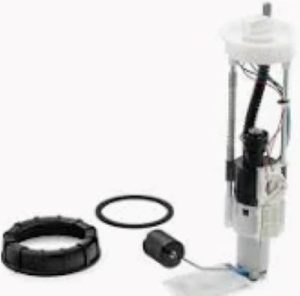Indirectly, the engine power is directly influenced by a fuel pump that delivers a proper amount of fuel at right pressure to the combustion chambers. If the pressure delivered by those fuel pumps then falls off, drivability will be significantly compromised and – usually under high demand — your car can start stuttering or even stalling completely. For instance, if the fuel pressure is insufficient during acceleration or uphill driving, the engine will not be able to produce its full power output and feel noticeably down on performance.
As engines need a proper ratio of air and fuel to produce effective power, this pressure control is very important for the air-fuel mixture in combustion. Fuel pumps are responsible for keeping this ratio proper by modifying the fuel flow as per driving conditions depending on the requirement of engine which results in enhanced fuel efficiency and high rate of combustion. Engines delivering consistent fuel pump performance, those with a low variability of less than one bar in pressure provide an increase fuel efficiency by up to 10% which offers real world savings and reduced polluting emissions. With a whopping 15 percent or more reduction in engine output possible due to even the smallest pressure drop caused by an aging or malfunctioning fuel pump, this is a big factor.
A turbocharged engine especially demands lots of fuel volume delivered at high pressure so the operation of a pump is vital here. Aftermarket high-flow fuel pumps are common in performance vehicles and can replace the standard factory pumps, which by design support up to 43 psi (0.3 MPa, or 300 kPa) but can deliver well beyond 80 psi (0.55 MPa; 550kPa), for those engines they support greater power outputs. These enhanced pumps ensure that consistent supply of fuel is given to the engine which maximizes the horsepower and torque output when they are put under intensive conditions.

According to industry experts like Alex Bishop from Performance Garage, the fuel pump plays an important part in ensuring consistent power over longer runs. "Peak horsepower and fuel economy are unattainable without consistent fuel delivery," he writes, adding that even with standard-output engines, variable pump rotor speed can save you need grams-per-hour of flow. For those of you driving high-performance vehicles or doing a tonne of kays in harsh conditions, his insights underscore the importance of fuel pump efficiency to engine output.
To learn more about the role of a reliable fuel pump in improving engine power and performance, visit Fuel Pump, an incredible resource for impeccable pump choices that improve fuel delivery and engine horsepower.
